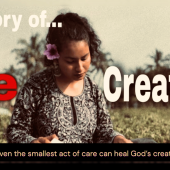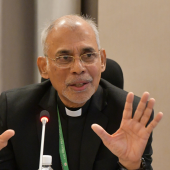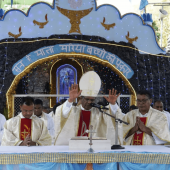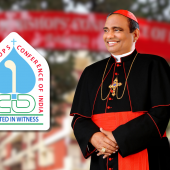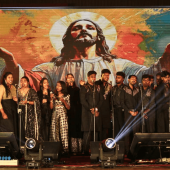Indian priest dreams of making a documentary on Odisha Famine of 1866 at 90
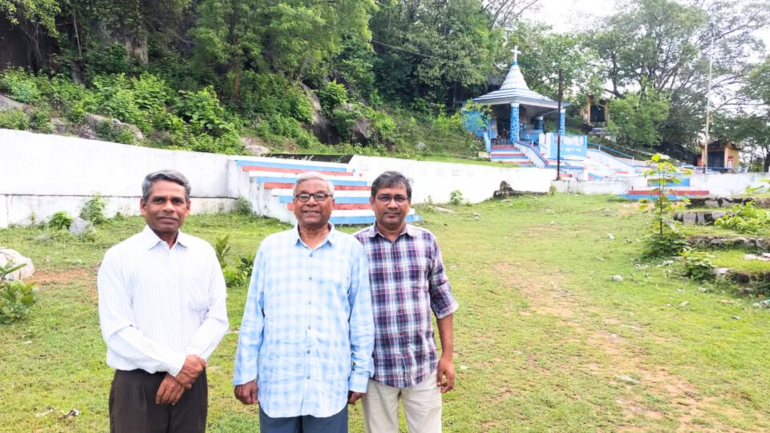
At 90, an Indian priest dreams of making a documentary film on the Odisha Famine of 1866.
Father Anselm Biswal, a priest of the Cuttack-Bhubaneswar Archdiocese in the eastern Indian state of Odisha, celebrated his 90th birthday on May 26 with family members, friends, and well-wishers.
He studied high school in Bhanjanagar, completed his Intermediate Arts at Samanta Chandra Sekhar College, Puri, and earned a Bachelor of Arts degree at Fakir Mohan College, Balasore, all in Odisha. He also holds a Master of Arts degree in English from Ravenshaw College, Cuttack.
He went abroad to sharpen his understanding of community development, community leadership, and credit unions in third-world countries at the Coady International Institute in Canada. He never looked back after that but worked relentlessly in social development, evangelization, and missionary work.
He was born in Dantolingi in the Ganjam district of Odisha.
He is an accomplished writer, speaker, and social worker. He was a director of Catholic Charities, the social action arm of the Cuttack-Bhubaneswar Archdiocese.
Now, he has a dream to develop a documentary film on the role of social workers and missionaries in the Great Famine of Odisha.
The Great Famine of Odisha, also known as the "Na Anka Durbhikshya," was a devastating calamity that struck coastal Odisha in 1866 from Madras northwards, an area covering 180,000 miles, resulting in the death of approximately a third of the population, which is estimated at over a million people.
A combination of failed paddy harvests, inadequate rice import infrastructure, and ineffective supply chains caused the famine.
He wishes to mobilize funds for the same.
The famine was attributed to a combination of factors, including natural disasters, economic hardships, and the failure of the British administration to effectively manage relief efforts.
The causes of the famine were many: severe droughts and floods impacted agricultural yields, leading to food scarcity. Existing land relations and high land revenue demands made it difficult for farmers to sustain themselves.
The British had colonized India during the famine.
The British administration's inadequate response, including poor communication and insufficient relief measures, exacerbated the crisis.
British officers, unfamiliar with the region, struggled to effectively communicate with the local population.
Local traders and merchants, instead of helping, hoarded rice for personal gain, further increasing the price of food.
The crisis led to the breakdown of social structures and relationships and the prevalence of disease and starvation.
The famine prompted the establishment of a Famine Commission, whose recommendations focused on improving infrastructure and relief measures.
The famine had lasting consequences, impacting social, economic, and political dynamics in Odisha.
Radio Veritas Asia (RVA), a media platform of the Catholic Church, aims to share Christ. RVA started in 1969 as a continental Catholic radio station to serve Asian countries in their respective local language, thus earning the tag “the Voice of Asian Christianity.” Responding to the emerging context, RVA embraced media platforms to connect with the global Asian audience via its 21 language websites and various social media platforms.









